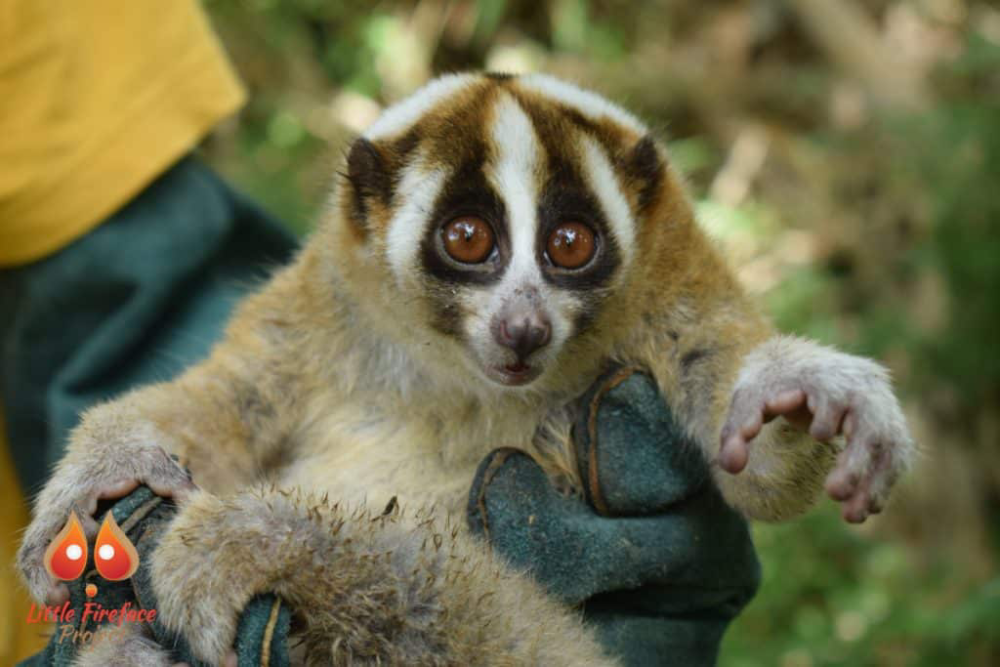The Javan slow loris (Nycticebus javanicus) is a small primate native to the island of Java in Indonesia. This nocturnal and arboreal mammal is part of the loris family and is popular for its distinctive large, round eyes, which provide excellent night vision. Here are some key aspects of the Javan slow loris:

Physical Characteristics of Javan Slow Loris
Size and Weight: They are small, with an average body length of 26-28 cm (10-11 inches) and a weight ranging from 565 to 687 grams (1.2 to 1.5 pounds).
Appearance: They have a short, dense fur that is typically grey to brown in color, with a lighter underside. The face has a dark stripe between the eyes and down the back.
Eyes: Their large eyes are an adaptation to their nocturnal lifestyle, allowing them to see in low light conditions.
Behavior and Ecology
Diet: Javan slow lorises are omnivorous, feeding on a variety of food items including fruits, tree gum, insects, and small animals.
Habitat: They inhabit primary and secondary forests, as well as bamboo groves and mangrove forests. They are arboreal and spend most of their time in trees.
Activity: They are solitary and territorial animals, with territories marked by scent. They move slowly and deliberately, which helps them avoid detection by predators.
Social Structure: Interaction between individuals is minimal, usually occurring only during mating or when females care for their young.
Conservation Status
The Javan slow loris is Critically Endangered on the IUCN Red List. The primary threats to their survival include:
Habitat Loss: Deforestation due to logging, agriculture, and urban development has significantly reduced their natural habitat.
Illegal Wildlife Trade: They are often captured for the pet trade or used in traditional medicine. The process of capturing and handling these animals can be very harmful and often fatal.
Local Beliefs and Practices: In some areas, they are hunted due to the belief that they possess medicinal properties.
Conservation Efforts for Javan Slow Loris
Efforts to protect the Javan slow loris include:
Habitat Protection: Establishing and maintaining protected areas to conserve their natural habitat.
Anti-Poaching Measures: Enforcement of laws against illegal wildlife trade and educating local communities about the importance of conservation.
Research and Monitoring: Studies to better understand their behavior, ecology, and population dynamics to inform conservation strategies.
Interesting Facts
Toxic Bite: The Javan slow loris is one of the few mammals with a toxic bite. They secrete a toxin from their elbow glands, which they mix with their saliva. This toxin can cause severe allergic reactions in humans and deter predators.
Slow Movement: Their slow, deliberate movements are an adaptation to avoid detection and to conserve energy.
Conservationists emphasize the importance of protecting the Javan slow loris to preserve biodiversity and maintain healthy ecosystems in their native habitats.









